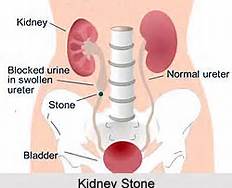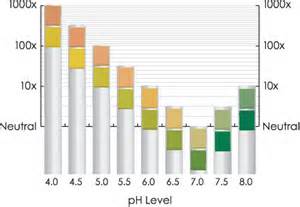Kidney Stones

|
to regain their health." A.J. Reb Materi |
The kidneys regulate levels of fluid, minerals, salts, and other substances in the body. When the balance of these compounds changes, kidney stones may form. Kidney stones (or calculi) are a common and incredibly painful condition. It is estimated that 10% of the United States population will pass a kidney stone at some time in their lives. Men have more kidney stones than women, and white people are more prone to kidney stone formation than black people. The incidence of kidney stones is higher in the summer. This may be because people perspire more in the summer; as a result, urine becomes more concentrated.
A kidney stone is a solid, rock-like type of material that has formed or is present in the kidneys, ureters, or bladder. Some people form stones when their urine contains more crystal-forming substances, such as calcium and uric acid, than the available fluid can dilute. A kidney stone is formed from mineral substances that precipitate from urine. They occur because solid crystals in urine separate and build up on the inner surfaces of the kidney. Kidney stones can stay in the kidney or travel down the urinary tract. Small stones are sometimes passed from the body with either a small or large degree of pain. Larger stones may lodge in the ureter, bladder, or urethra, blocking urine flow and causing extreme pain. There are four types of kidney stones, each made of different substances.
you we’ll learn about:
- What kind of kidney stones there are
- What are symptoms of a kidney stone attack
- How imbalanced fat soluble vitamins affect kidneys stones
- In what cases you don’t need a doctor












